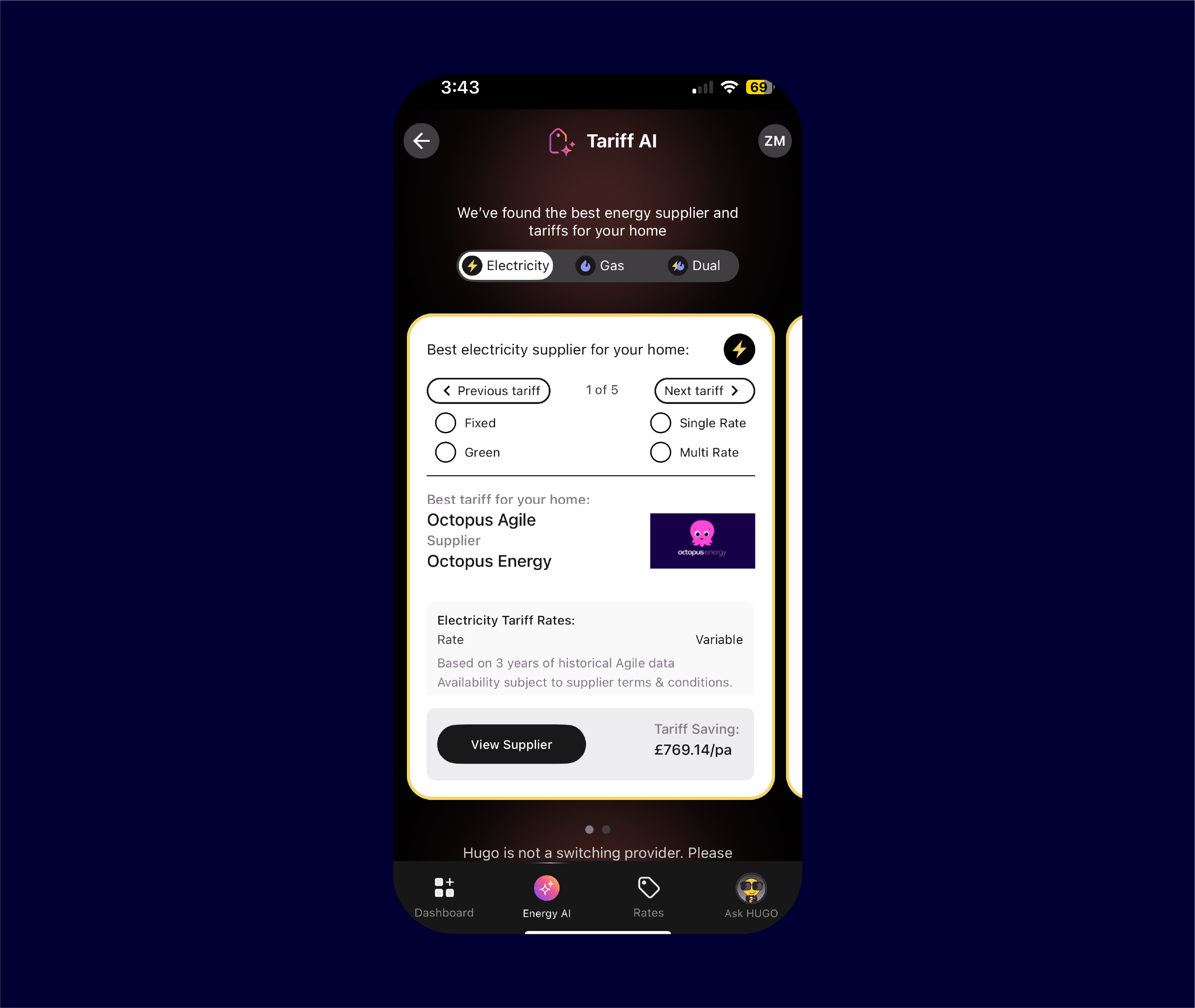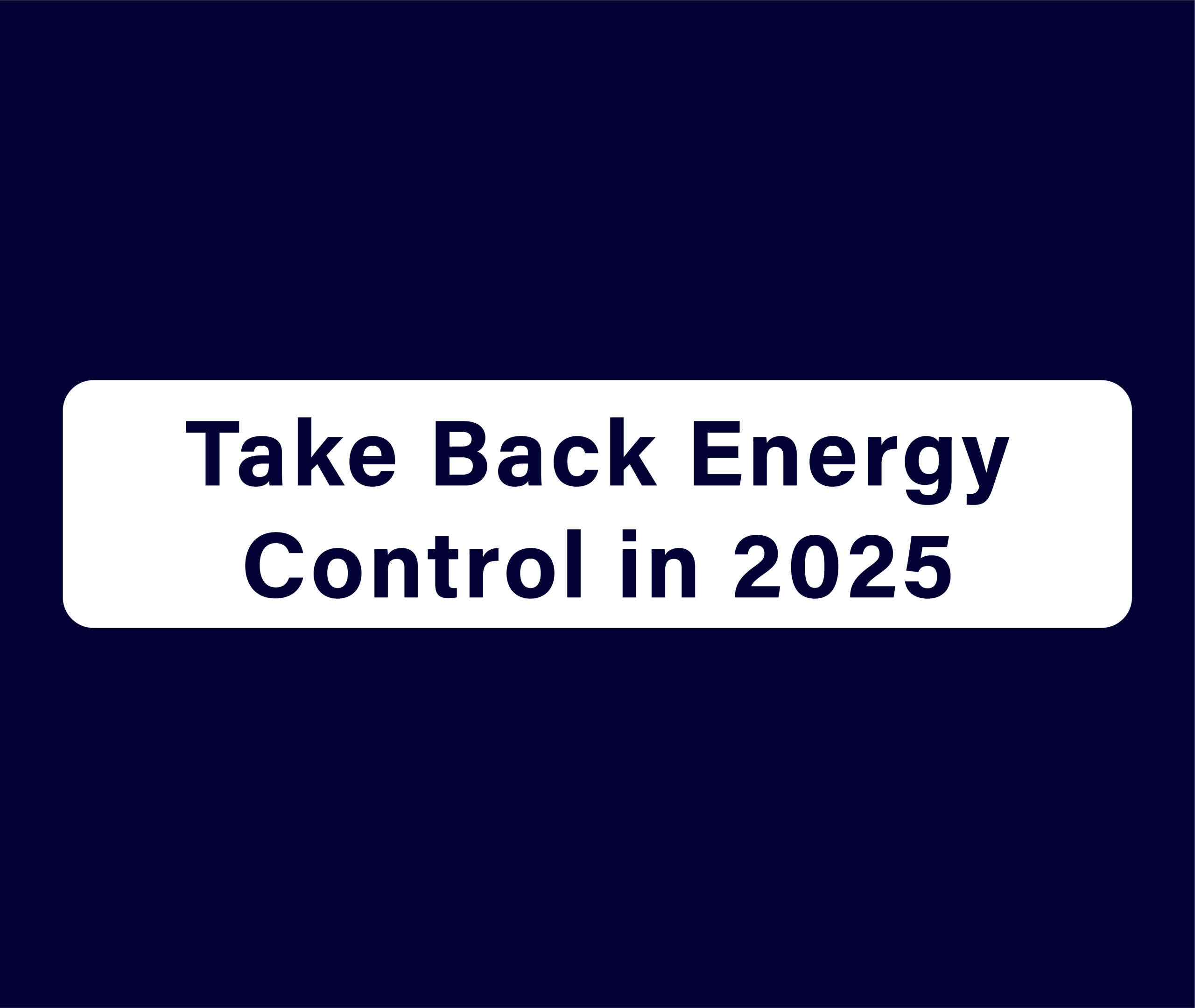No one likes a cup of tea as much as the Brits, but amid the energy crisis, how much does it cost to boil a kettle?
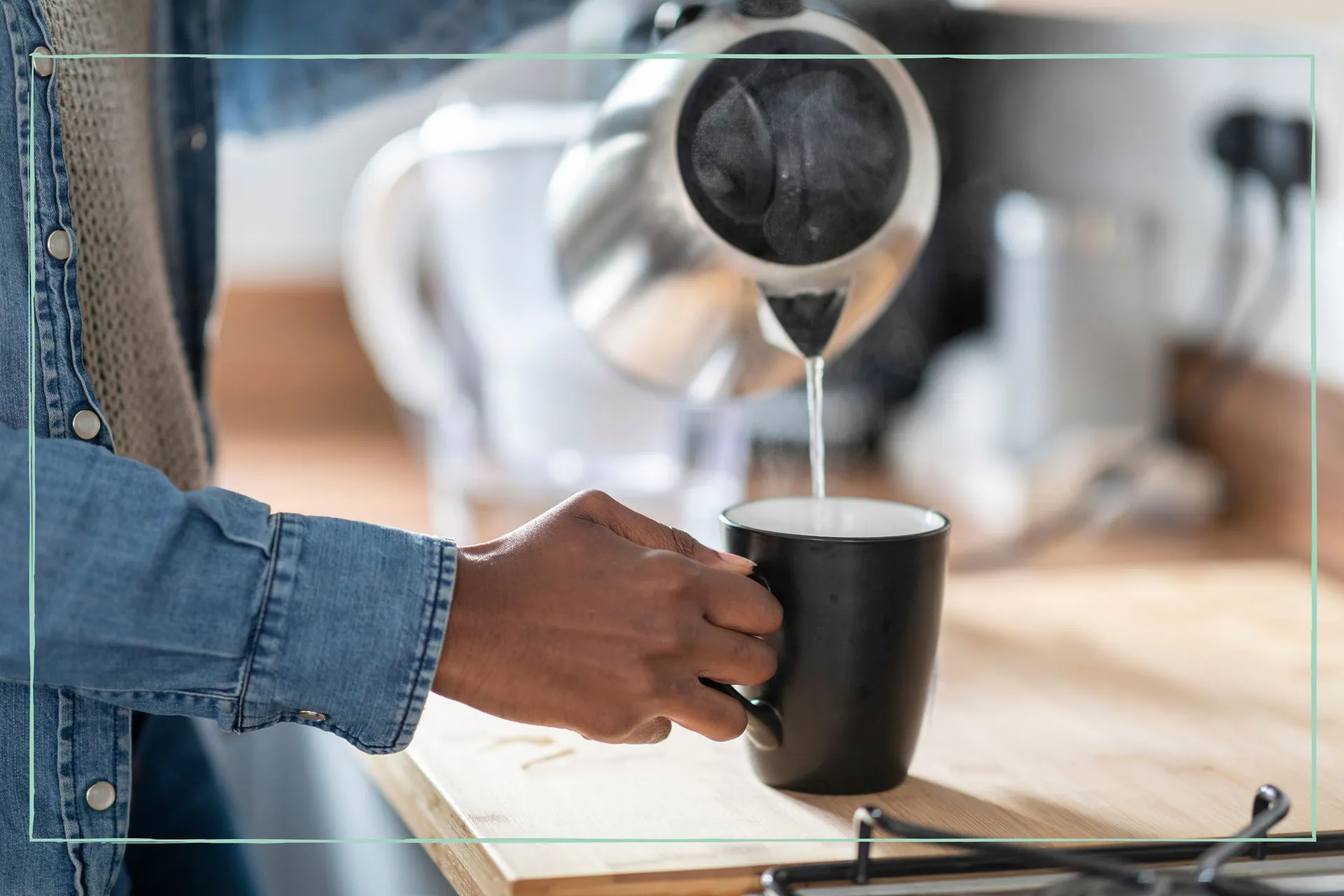
With energy prices at an all time high, it’s no wonder that families are wondering how much does it cost to boil a kettle to figure out the cheapest way to boil water.
Throughout most of 2022 and into 2023, households have been worried about how much their energy bills will cost(opens in new tab). This is the case even though the Government introduced the Energy Price Guarantee(opens in new tab) to prevent typical annual energy bills from hitting the predicted highs of more than £4,000.
Families have been trying to understand how to save energy in their homes(opens in new tab) and a key way to do that is to understand how much your most-often used appliances cost to run. It’s also important to check your energy bills(opens in new tab) and make sure they are correct.
Head of the UK Tea and Infusions Association (UKTIA), which is running a Smart Boil campaign to encourage tea drinkers to only boil the water they need, Dr Sharon Hall(opens in new tab), said: “With rapidly rising energy costs, for consumers and businesses alike, every bit we can save on our electricity bills helps us deal better with the cost of living crisis.”
According to the UKTIA, Brits drink around 100 million cuppas a day. That’s a lot of kettles being boiled – so how much is it costing us?
How much does it cost to boil a kettle?
To boil a cup of water in a kettle, it will currently cost you about 1.28p, based on an average 3kW kettle taking around 45 seconds to boil.
That is based on the current price for a unit of electricity being 34p per kWh.
When it comes to boiling a full kettle, it’s understandably more expensive. Most kettles can boil around 1.7 litres of water in about four minutes. You can expect to pay 6.8p to boil a full kettle.
If you had two cups of tea every day for a year, and only boiled the water you needed, it would cost you £9.34. But if you boiled a full kettle each time, it would cost you £49.64. So it’s definitely more cost effective to only boil the amount of water you need, rather than a full kettle.
| Cost per cup | Cost per full kettle | |
|---|---|---|
| 3kW kettle | 1.28p | 6.8p |
| Annual cost if you had two hot drinks a day | £9.34 | £49.64 |
The Energy Price Guarantee, which stands until April, sets the maximum unit cost for electricity at 34p per kWh. However, the guarantee which currently caps average annual energy bills at £2,500, will go up to £3,000 from April. So, from April boiling the kettle will sadly cost you more.
Are some kettles cheaper to boil than others?
Some kettles will be more energy efficient than others, with the most eco-friendly kettles having a brief overboil time and low minimum fill level.
Lara Brittain, kitchen expert at Currys, says the important thing to look out for when buying an eco-friendly kettle is how efficient it is with energy and water use. “Does the kettle allow you to boil 1 cup (about 250ml) of water, and therefore not use electricity boiling water that will not be used?
“You should also look at the materials your kettle is made from and if it is repairable should anything go wrong, to avoid landfill for longer.”
A good kettle also needs decent insulation. One with poor insulation loses heat as it boils and so takes longer to reach boiling point. Limescale can also reduce the efficiency of kettles and increase the length of time a kettle takes to boil. Opting for a kettle with a removable filter can reduce limescale and the need for regular descaling.
Another key feature to look out for when buying a kettle is temperature control. For many drinks, there is no need to boil water to 100°C.
Most energy efficient kettles allow you to heat the water to pre-set temperatures. This means you can enjoy your favourite hot drink at the optimum temperature.
Here are the approximate ideal temperatures popular hot drinks should be made at:
- Green tea: 75 – 80°C
- Instant coffee: 80 – 85°C
- Oolong tea: 85 – 90°C
- Black tea: 100°C
Energy saving features to look out for when buying a kettle
- Variable temperatures – Some kettles will allow you to heat water to temperatures lower than boiling, which uses less energy. It’s not always necessary for the water to be at 100 degrees, so consider a kettle that can heat water to lower temperatures too.
- Low minimum fill – It’s always cheaper to boil less water, so kettles with a lower minimum marker will save you money if you’re heating water for just one cuppa.
- Water level gauge – A kettle with a transparent window that clearly marks how much water you’re boiling will help you avoid wasting energy by boiling more than you need.
- Removable filter – Because limescale reduces the efficiency of kettles, choosing one with a removable filter will make it easier to descale and help save energy.
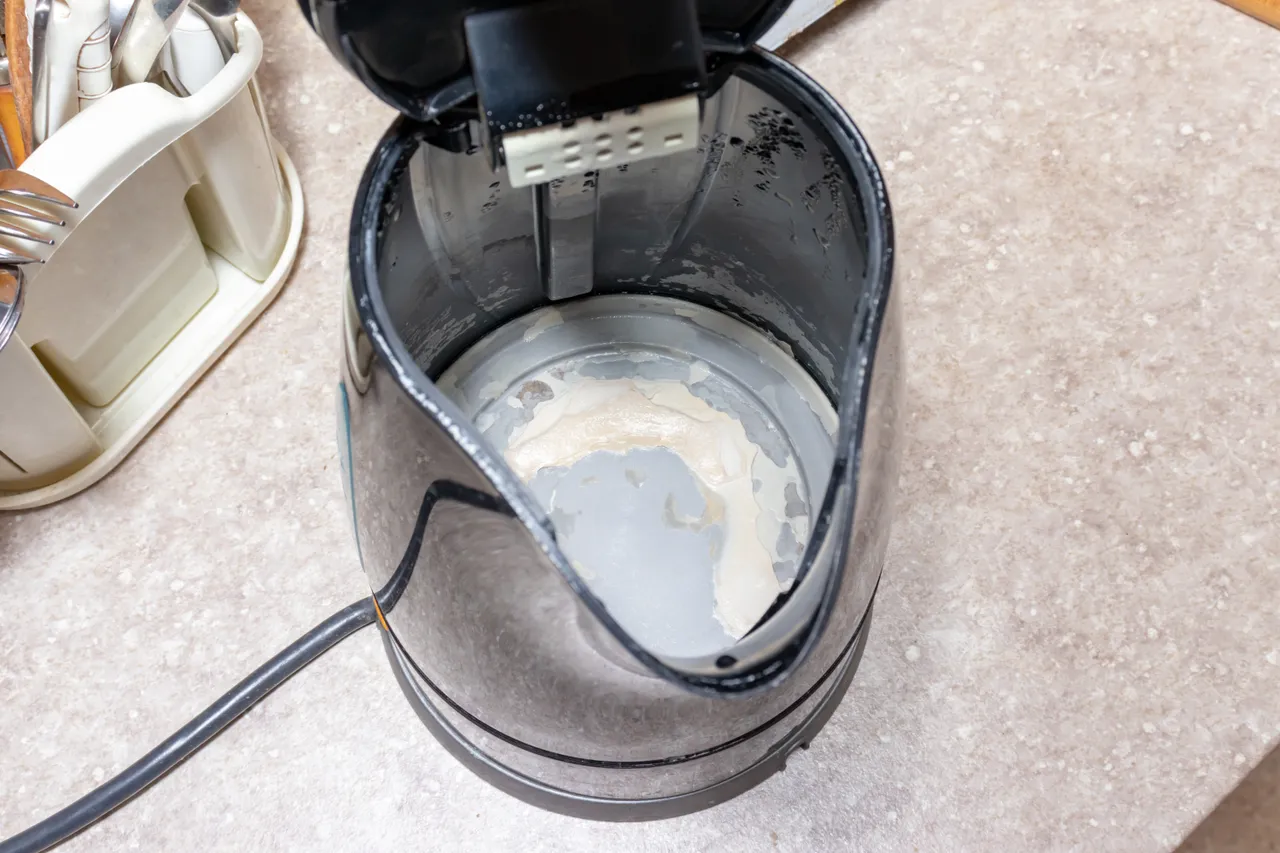
Is it cheaper to boil water in a kettle or on the hob?
Whether it is cheaper to boil water in a kettle or on the hob will depend on what kind of hob you have. If you have an electric hob, it will cost about the same amount as an electric kettle.
Ben Dhesi, creator of energy-saving mobile app HUGO(opens in new tab), says: “Boiling your water on your electric hob might seem the cheaper option, but this will usually cost the same, if not more than using a kettle, with the amount of kW used generally the same, if not more if you don’t use a high enough heat.
“Using a gas hob could be slightly cheaper, with the cost of using 1 minute of gas costing around 0.17p, but this can often take longer and is less efficient than using electricity.”
Many modern kitchens don’t need a kettle – they have a boiling water tap that provides instant hot water instead. Popular brands include Quooker, Wödår and Grohe.
Michael Sammon, managing director at Wödår, says: “An instant boiling water tap costs about 3p a day and saves you time/effort on waiting and filling up the kettle.
“Having 2.4 litres of piping hot water literally on tap means you can use exactly the amount required every time. This helps you to avoid overfilling, which reduces both water waste and energy waste.”
However, although instant boiling water taps might be energy efficient, the upfront costs can be eye-watering. Even the cheapest taps cost at least £500, while some cost more than £1,000. With some taps you’ll pay installation costs on top of the purchase price, and they need to be maintained each year too.
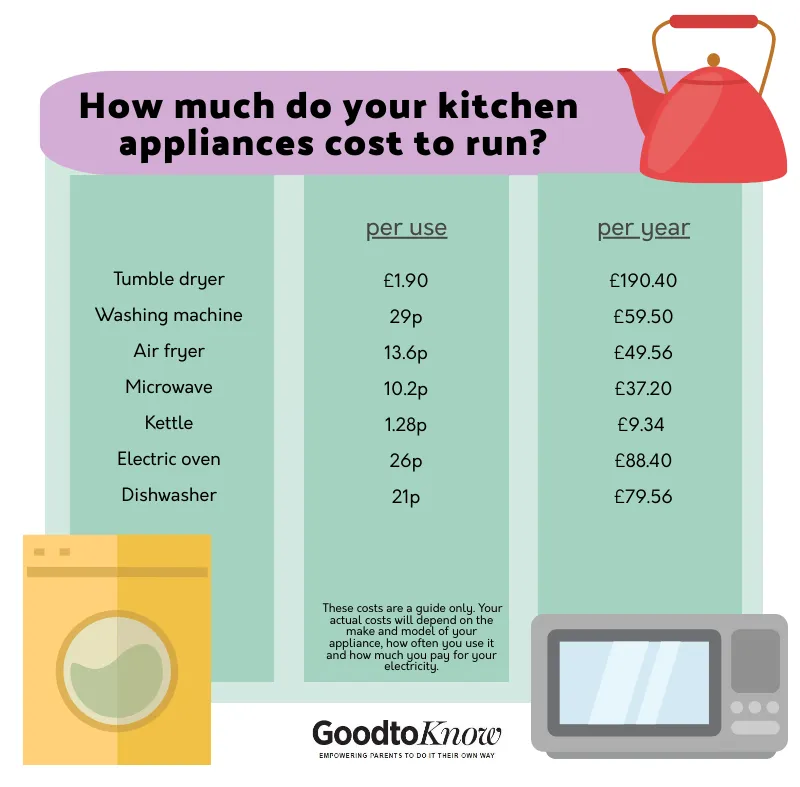
Use the comparison tool below to compare how much your most used home appliances cost to run:
How to save energy when boiling a kettle
- Don’t overfill the kettle – The more water you boil, the more energy you use, so make sure you’re only filling the kettle with the water you need.
- Descale regularly – Getting rid of limescale will improve the efficiency of your kettle. You can buy limescale remover from the supermarket, but you can also fill your kettle half with water and half with white vinegar and leave it to soak.
- Unplugging the kettle when it’s not in use – Leaving devices plugged in at the socket can mean they are still using a small amount of power, so unplugging your kettle from the wall when you’re not using it can save some energy.




